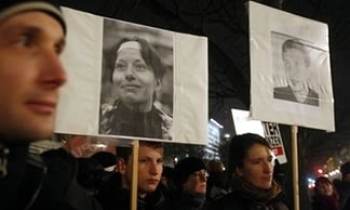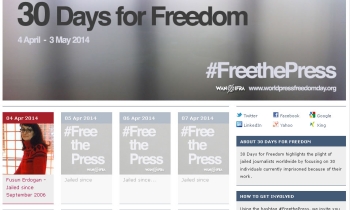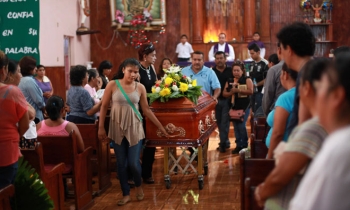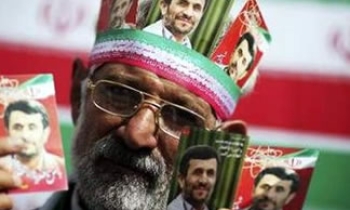Chad is now one of the few African countries without an effective independent press since a state of emergency was declared on February 15. Journalists are fleeing abroad to escape arrest or falling silent in protest against censorship and "very serious" official threats.
And now, with the adoption of a new press law by decree instead of abolishing prison sentences for press offences, it makes them much longer, and it makes it harder to launch a newspaper.
Under the new law, the maximum penalty for publishing false news and defamation (articles 41 and 47) has been increased to three years in prison, while the maximum penalty for “insulting the president†(article 48) has been increased to five years.
Under article 15 of the old law, anyone wanting to launch a newspaper just had to file a declaration with the ministry of commence. Now they have to appear before the prosecutor’s office and the High Council of Communication. Previously, anyone publishing a newspaper just had to have a university degree. Now, under article 17, both the publisher and editor have to graduate from a school of journalism.
“The government promised several times that the press law would be liberalised,†Paris-based Reporters sans frontières (RSF) said. “Last September, the Union of Chadian Journalists and other media organisations recommended decriminalising press offences. But now this new law has gone in the opposite direction, toughening all the existing provisions and increasing the penalties for press offences.â€
RSF said, “The authorities took no account of the many proposals that were submitted. Instead, in a cowardly fashion, they took advantage of the state of emergency to adopt this new law by decree, avoiding any debate. This is an unacceptable imposition that could finish off a press that is already close to death.â€

Since the February 15 state of emergency declaration, a censorship committee has been set up, privately-owned papers have stopped coming out, some radio programmes have been dropped by privately-owned stations and the communications ministry has called the independent media "mouthpieces of foreign aggressors." The crackdown has continued even though rebel forces have withdrawn from the capital, N'Djamena.
The emergency includes a curfew, controlled movement of people and vehicles, house searches and control of the media, which must submit all material for approval before printing or broadcasting.
Privately-owned newspapers said on February 18 they were halting publication for as long as the emergency lasted, in protest against "the suspension of civil liberties" and censorship. The papers were the weeklies Le Temps, L'Observateur and the twice-weekly N'Djamena Hebdo. Another privately-owned paper, Notre Temps, was banned in December 2007. The privately-owned pro-government daily Le Progrès is now the only independent paper still appearing.
The president of the Union of Privately-Owned Radio Stations (URPT), Gapili Misset, called on member-stations to drop some programmes in protest against the official pre-censorship. He urged the government to begin "an open and sincere dialogue" with the privately-owned media and "stop harassing" them.
Communications Minister and government spokesman Hourmadji Moussa Doumngor told the state-owned radio station RNT on February 20 that the independent media were "conniving with the rebels and conveying their propaganda" in opposition to government efforts. The media "does not realise the danger" to the country, he said, and the government could not allow newspapers to "distract public opinion."
Pre-censorship of the media was the "logical result of the latest Sudanese aggression" and since the country was "at war" such measures were "quite normal." He said "a responsible media would focus on the Sudanese aggression against Chad, but it does not do that."









